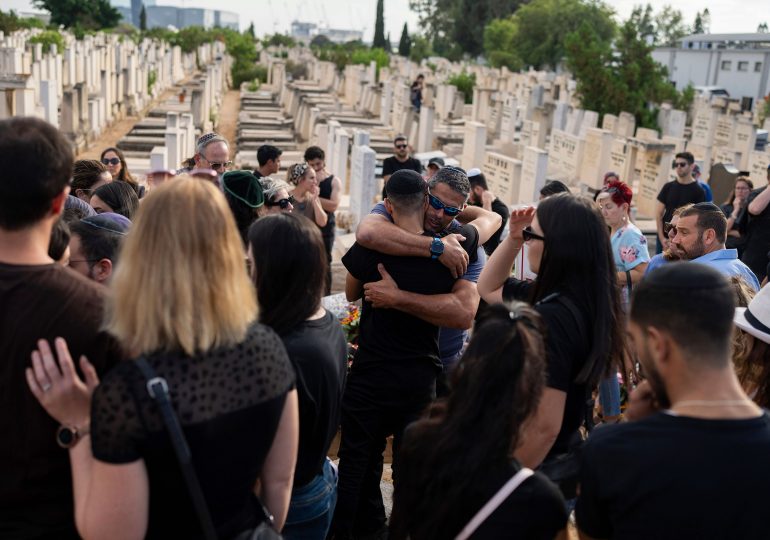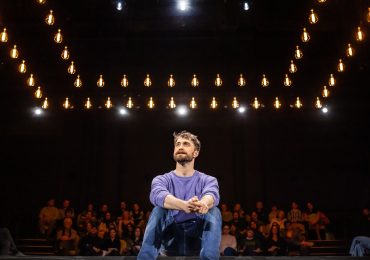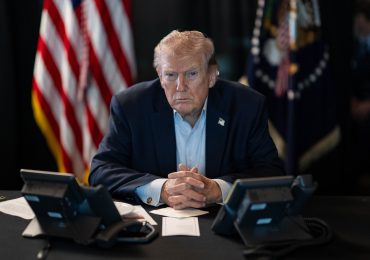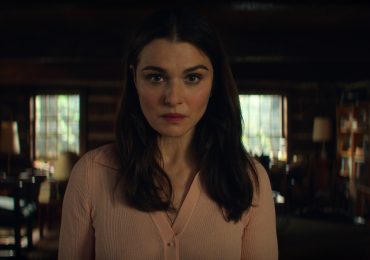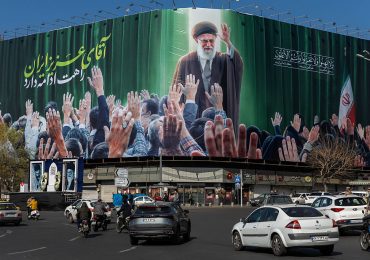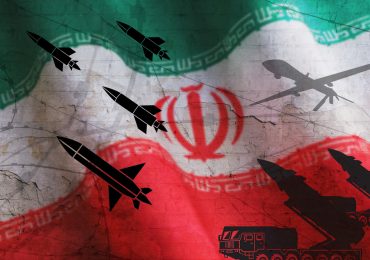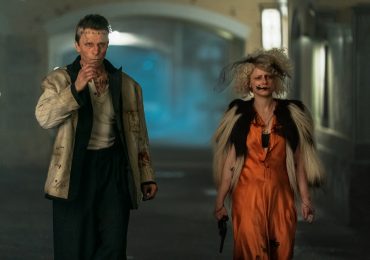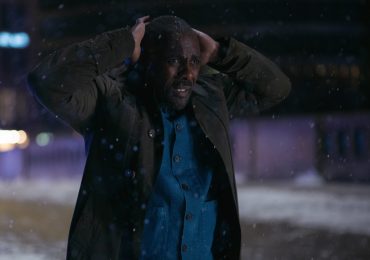My daughter was a few months old when I decided to spend a night away from her for the first time, to go to a music festival in the desert. I still remember pumping milk just before I headed out. I also remember the festival, dancing under the starry sky, driving home quickly at dawn so that I’d be there to nurse the baby when she woke up.
[time-brightcove not-tgx=”true”]
On Friday October 6th, Celine Ben-David Nagar made the same journey I had. She left her six-month-old baby Ellie at home and gave herself permission to spend one night of freedom and dancing. Her maternity leave was ending that week, and she wanted to let loose a little before going back to work. She left Ellie for one night.
Celine never came home. Ido, her husband, just had time to exchange text messages with her when the first sirens blared early Saturday morning. Celine said she was all right, soldiers were on their way to help. Then she stopped texting. Ido was driven mad with worry. He tracked the location of her phone and set off. A new father, alone in an war zone, searching for his wife. When he got to the phone’s location point, he found Celine’s car. Empty. A few bullet holes. Some blood.
The magnitude of the horror slowly emerged: dozens of terrorists in pickup trucks had arrived at the field where the festival was being held. They stopped their trucks in a circle around the young ravers and opened fire on them with large machine guns mounted on their vehicles. Terrorists disguised as Israeli policemen stood on the access road, signaling for cars to stop. When they did, the terrorists shot the drivers, hid their bodies in the cars, and awaited their next victim. Some of the ravers tried to flee. A few were successful. Others were kidnapped and taken across the nearby border to Gaza. Later that day, hundreds of bodies were found around the field. Celine was not among them.
Ido went home, to a nursing baby whose mother has not been located. Israeli mothers who heard his story brought pumped milk for Ellie. If Celine was alive, we hoped, somewhere out there in the Gaza Strip, is a mother whose body keeps making milk for a baby in Israel.
I held on to that hope, like so many others here in Israel, until the day I came back from my work at the hospital and heard the news: Celine’s body was found.
Perhaps this is the most primitive defense mechanism: hearing about Celine Nagar and telling yourself it can’t be happening. It’s a horror film. Something distant, improbable. You read about Celine Nagar and you keep scrolling. I do my best to resist this mechanism: with over 1,400 people massacred on October 7th, I try to read ten obituaries a day. I have this strange feeling of duty: to know their names, to look at their faces.
Read More: The Diplomatic Off Ramp for Israel After Gaza Invasion
The faces that haunt Israel are those of the roughly 240 people taken hostage to Gaza, including children, women and the elderly. Avigail Idan is just three years old. Early on Saturday morning, her mother Smadar was murdered right in front of her eyes. She and her father, Roee, a press photographer, were kidnapped and taken to Gaza. Roee was shot, but witnesses reported that he was still alive when they took him. His body was found later. No one has seen Avigail since. What goes through the mind of a three-year-old girl kidnapped in Gaza? What goes through the minds of her two brothers, six and nine, who hid in the closet and saw their parents shot and their sister being taken?
Israelis witnessed the massacre in real-time. Messages from civilians trapped on kibbutzim along the southern border reached friends in Tel Aviv. We read their pleas for help, until they stopped writing. We saw them in snuff films posted by Hamas. Films we were warned not to watch but we did—we did watch them—because we needed to make sure it was not all a figment of our imagination. That the beheadings, the rapes, the torture—that this nightmare was in fact our reality.
I write so that these people will be remembered. I write so that no one dares forget them. I write because there are those who say the story is “complicated” and “nuanced.” They will hide behind their nuances and avoid taking a clear and uncompromising stand against terrorism.
But there is nothing complicated or nuanced about entering the home where Tamar and Jonathan Siman Tov lived with their three small children, and shooting them all in cold blood. The Israeli occupation of Palestine is an injustice that must stop, but the toddlers who were slaughtered at Kibbutz Nir Oz had nothing to do with the occupation. Anyone who opposes the occupation out of concern for human rights must display that same concern for the human rights of Israeli women, children, and elderly people dragged out of their beds and taken to Gaza.
In the days since the massacre, the staff at Shalvata Mental Health Center where I work has been called upon to support families rescued from the catastrophe. We received written guidelines from a supervisor: Forget everything you learned about treating trauma, she told us. You can’t tell these people, “You’re in a safe place now.” Their children, their wives, their fathers—their most precious loved ones have been kidnapped by people who have demonstrated cruelty beyond any imagination. Nowhere is safe until we bring them home.
The worst of the trauma is borne by the survivors and by those who have lost loved ones in this attack, but Israeli society as a whole will never be the same again. On the days following the attack, Tel Aviv looked like a ghost town. People were afraid to stray too far from bomb shelters and safe rooms, preferring to stay inside. Patients asked if we could meet over Zoom instead of at the clinic: they were scared to leave home. This is what collapse looks like. The Jewish state was founded after the Holocaust to ensure that Jews would never again be a persecuted minority, and now Israel has experienced the worst massacre of Jews since the Holocaust.
People who have been working with the survivors of the massacre report secondary trauma – you hear their stories, and you’re not able to sleep at nights to come. In front of such atrocities, we must rehabilitate our trust in humanity. And so, I keep reminding myself of the women who pumped milk for a baby they never met. I remind myself of the families who opened their homes to host the survivors. And I remind myself that not all Palestinians support Hamas. And that eventually we must be able to reconcile with the civilians on the other side.
Many of the kibbutz residents who were slaughtered opposed Netanyahu’s right-wing government and were active in the mass protest movement that has swept Israel for the past nine months. It was civic protest at its finest—full of energy, full of hope for change. But the atrocities committed by Hamas have put an end to the current wave of protest. Until the Black Saturday, the protesters feared for the future of our democracy; now they fear for their children’s lives.
Translated from the Hebrew by Jessica Cohen
Leave a comment
